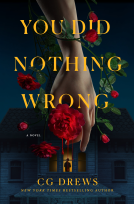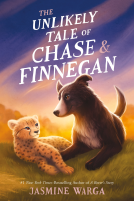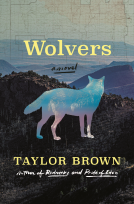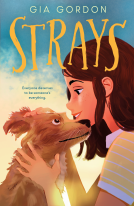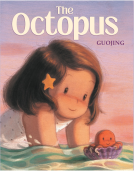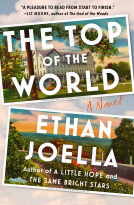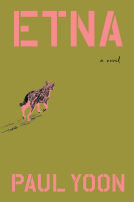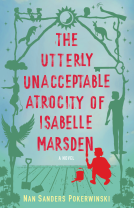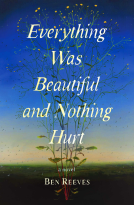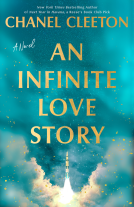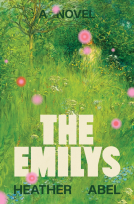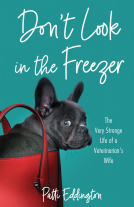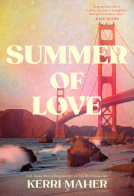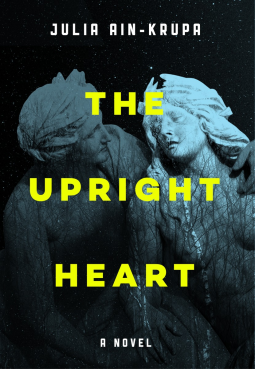
The Upright Heart
A Novel
by Julia Ain-Krupa
This title was previously available on NetGalley and is now archived.
Send NetGalley books directly to your Kindle or Kindle app
1
To read on a Kindle or Kindle app, please add kindle@netgalley.com as an approved email address to receive files in your Amazon account. Click here for step-by-step instructions.
2
Also find your Kindle email address within your Amazon account, and enter it here.
Pub Date Sep 13 2016 | Archive Date Jul 13 2016
Steerforth Press | New Europe Books
Description
The Upright Heart chronicles the return from Brooklyn of a Jewish man, Wolf, to his native Poland soon after World War II. He is haunted by the memory of his Catholic lover, Olga, whom he abandoned to marry a woman of his own faith and start a new life in America, and who perished sheltering the parents and younger sister he left behind. Harassed on the streets of postwar Poland, Wolf is watched over by the spirits of those who died during and after the war but have yet to let go. His story is woven together with those of others, living and dead, Catholic and Jew, including the deceased students of a school for girls, a battalion of fallen German soldiers, and an orphan boy who wanders the streets of Krakow, believing in a magic pill he has conjured up as a way to survive.
Set amid the ruins of the Holocaust and the Nazis' total war, this haunting novel is at once a page-turning drama and a meditation on what it means to be human, part of a community, alive. The Upright Heart's dreamlike qualities and fluent lyricism draw the reader toward a consecrated realm, while its narrative force guides the story into the present, where survivors and their children, beset by the devastations of the past, struggle alongside the dead to perceive and appreciate the beauty of that which remains and that which might yet be.
Julia Ain-Krupa is the author of Roman Polanski: A Life in Exile (Praeger, 2010). She was born and raised in New York City, and spent her early years in Krakow, Poland. In 2012, she received a creative writing Fulbright scholarship to Poland, where this novel was conceived. She lives in Tel Aviv and New York City.
"Stylistic virtuosity, penetrating emotional power, and a post-apocalyptic vision ... a brilliant literary achievement... . Julia Ain-Krupa gives us something luminous." —Philip K. Jason, Jewish Book Council
"The Upright Heart is unlike anything I have ever read. It is hard for me to put into words how it is remarkable because, in surprising ways, this book exists in a place beyond words. It takes place in Poland. It is a family saga, a ghost story, and a perfect love story. World War II is the sinkhole around which the characters and events revolve, faster and faster–a feeling familiar to those of us who still have nightmares about the Holocaust. At the end of the tunnel are light, and stars, and understanding. I cried constantly while reading it, and remembered again, fleetingly, that life is impossibly precious, that reading is religion; it is one of the best things I've read." —Liana Finck, author of A Bintel Brief: Love and Longing in Old New York
"The Upright Heart is a poetic, beautifully written novel that presents, in a moving way, the fates and memories of both Catholics and Jews creating their new reality in post –World War II Poland. The gifted young author shows here an unusually well-tuned sensibility." ⎯Irena Grudzinska Gross, Princeton University
Available Editions
| EDITION | Other Format |
| ISBN | 9780990004387 |
| PRICE | $14.00 (USD) |
Average rating from 8 members
Featured Reviews
 Cheri S, Reviewer
Cheri S, Reviewer
4.5 Stars
This is not an “easy” book to read, at least not something you breeze through while your thoughts wander, which mine did after a time. I had to take breaks then, I had to read this in bits and pieces, and sometimes go back and re-read those bits and pieces again. The beginning flowed with beautiful prose and sadness and some of the grace of living, and yes, of dying, too, but after a short period, I’d be overwhelmed by these post-WWII years in Poland, the tragedy of it all, all the tragedies.
Wolf wants to return to his homeland, a place he hasn’t lived since his parents insisted he marry his cousin, leaving Olga, the woman he loved behind, and leaves Poland behind for a new life in New York. A world away. He is not there when the worst of things happen; he is more or less happily married with his wife and children living in New York. Yet he feels drawn to return, to honor those he left behind.
“There are three faded photographs stuffed into Wolf’s suit jacket pocket. No handkerchief, no dash of color, only three small crumpled photos to commemorate a life that has already split in two.”
“Wolf looks out the window and exhales. Buds are blossoming along the road to the tune of a bittersweet cry. Those little birds, they sing with delight no matter what is happening on this earth. Their songs can shower this world with blessings, signaling the beauty of a new day, but they can also be the final arrow to remember how beautiful life once was and how it can never come back together again."
Then, there are the Sarahs…
“We are all called Sarah. My name used to be Rachelka, but then it was changed, and now I am Sarah just like all the other girls. My house is built of fragile bones. They shine like Crystal prayers in the moonlight. Breathing with the rest of the world, they tremble with mystery, and become mirror images of that last living thing that gives us life, the night. These bones are built of the same calcium that once belonged to the stars.”
There are others whose stories interweave with Wolf’s; there are those who follow him around, the spirits of those who have yet to let go, watching over him. There are also the living, the boy, an orphan, and the dog. It all flows like a dream at times, this time, these places. All connected.
A prayer for the dead, a wail in lamentation, a keening for the souls tragically lost… a story of the living, for life well lived, for life itself, this is all those things, and more – such lovely prose, and overwhelmingly poignant. Like life itself, sometimes, you just have to slow down to see the beauty of it all.
Pub Date: 13 September 2016
Many thanks to Steerforth Press, NetGalley, and to author Julia Ain-Krupa for providing me with an advanced copy for reading and review
 Mike W, Reviewer
Mike W, Reviewer
World War II has ended, but for Poland the misery has not. Poverty and hunger are rampant as its people begin to put their lives back together and even as some of the survivors dare to be happy again, many of the dead find their souls still trapped in the country, watching the recovery and wondering when their time to move on will come.
The Upright Heart is a unique and interesting look at he horrors of war. Unique because it not only looks at the fear and anxiety of the survivors attempting to rebuild, it also examines the state of some of the dead. In fact, the dead must come to terms with their own fears and anxieties, and even with the fact that they have indeed died. A school full of young girls, a platoon of soldiers, a beautiful young woman discovered to be hiding her Jewish ancestry; each seemingly must accept their new fate before being allowed to move on to whatever is next.
These vignettes on the dead were the most fascinating aspect of the book for me. So descriptive and different, it was fascinating to read Ain-Krupa's visions of death and the afterlife. There are several strong characters here and as the novel jumps between each of their narratives a picture of a broken nation emerges, but one with hope both for the living and the dead. Ultimately it is that hope, however distant, that makes The Upright Heart a worthwhile read.
 Lauryn N, Reviewer
Lauryn N, Reviewer
In the case of Julia Ain-Krupa’s upcoming The Upright Heart, I find myself once again in the situation where what I was expecting based on the description provided and what I actually got were two very different things. Yet, when I went back to the description it actually is very close to the story being told in the novel—it just didn’t prepare me at all for the way that story was going to be presented. Luckily, in this case the surprising difference between expectation and reality worked in the novel’s favor, and I can’t honestly think of a much better way that the book’s description could prepare the reader for the way the narrative unfolds.
In the years following World War II, the people of Poland—both living and dead—struggle to make peace with all that transpired. Wolf married and moved to America before the war while the rest of his family were killed in the war; he returns to his hometown to see what is left and to say the prayers for the dead in the hope he and they may rest easier. On another plane, his first love Olga—a Catholic who helped hide his family as long as she could—clings to him when he reappears; she is unable to move on but isn’t sure why. A young woman, Anna, sees and feels the spirits of the dead around her, uncertain whether the people she sees are among the living or the dead; she is also haunted by memories of her former coworker, a woman who concealed her Jewish identity when they both worked as maids in the household of the governor general’s subordinate. Wiktor and his family survived the war but an on-the-job accident shortly after its end leaves Wiktor’s family mourning his loss while his spirit seeks to assist the spirits of others who have been having trouble moving on.
The most surprising—and difficult thing—to adjust to in this novel is the form the narrative takes. It switches between first and third person frequently but what proves most disorienting is that these narrative switches come with no indication as to whose perspective it’s jumped into. The reader must use only the clues and cues in the text to discern who it is that’s speaking and which of the interwoven tales is being told at the moment. The switches between them are also lacking a predictable pattern. Ordinarily, this sort of chaotic presentation might undermine the story being told as it can distract the reader from the underlying plots and characters, but in this case I think it works. The flow of the writing keeps the reader moving along at a steady pace and helps to focus the emotional thrust of the story, which is far more important than keeping careful track of how and where all of the plot points and narratives interact with one another.
The relationship between the living and the dead as its presented in the book is a thoroughly interesting one. With living characters that can occasionally see the dead and dead characters that do not understand they are dead, Ain-Krupa explores the boundaries of existence in innovative—and heartbreaking—ways. It might not be the most straight-forward narrative, jumping backwards and forward in time as frequently as it shifts narrative perspective, but it puts the reader in the same position as the characters in many ways, not the least of which is trying to make sense of the senseless acts of violence and tragedy that World War II encompassed.
The Upright Heart will be available for purchase September 13, 2016.
This is a stunningly beautiful – yet disturbing – dreamlike book. It shows that even in the midst of the most appalling atrocities that man has committed against man, there is hope, love, kindness and beauty alongside the pain, horror and loss.
This is a book about coming to term with the past – as former victim, as perpetrator, and as active or passive witness.
After the Holocaust, Wolf – a young Jewish man who had escaped to America – returns to his old home in Rybnik, Poland to find it utterly changed. While some of the faces are familiar, he is no longer welcome: “They take note of him, the stranger, who is detectable immediately as an outsider, but who is also as familiar as any other resident of the town. The face that has come back to haunt them”. He discovers “his hometown, which was once more than fifty percent Jewish, was now a place inhabited by half a world, half a heart, and most terribly, only half a soul”. “Everyone who knew me and loved me is gone. First there was death, and then there weren’t any people anymore. Now there are new people who want to forget that the old people were ever there”.
The voices of the living and the dead are given equal weight, and the narrations slip effortlessly between the two, as well as across timelines. Before, during and after the war meld into one. Where there are “no other options but to exist in between”.
Apart from Wolf, there is a large group of characters inhabiting this dream world: Rachelka and the other Sarahs in the school, German soldiers trying to get home, the old man – Wiktor – and his family, a young orphan boy, Olga, Anna and Maryna, and a small dog, as well as a cast of other Poles. All the stories are interwoven.
Wiktor acts as a guide and protector. Although the young boy is starving and alone, he possesses a “magic pill” that makes everything better, and he is desperate to pass on his good luck: “because it is important to share, because I can see that you need rescuing, too”. He is eternally optimistic and acts as a talisman – of hope for a better future: “I don’t know why, but I know that even while I sleep on the grass beneath the bridge, I am never truly alone. There is always another day, always a pigeon to nestle in my arms, always a chance to begin again”. Anna uses her imagination to escape the horror of her existence where she felt “like a cloistered witness to the end of a world”, and the guilt of her survival.
Everyone has lost someone and some intangible part of their soul. The book looks at mourning and the comfort of ritual prayer as ways of overcoming the loss, and as tools enabling passing on. The dead appear more at peace than the living – their pain is over. Which comes across as a wonderful consoling thought – That there IS a light at the end of the tunnel.
The language is poetic and paints emotionally very intensive, though visually opaque, scenes: “In this region of Poland daylight can seem like a pale and hallucinatory dream, so white that it is as if God were trying to erase the world”. My impression of the book was that it all took place in varying shades of grey, through a metaphorical mist. If the book is ever filmed – it cannot be done in colour.
This is a magical book that is experienced rather than simply read. Your emotions are pulled all over the place. Even writing this review I am welling up, as I remember what I have absorbed.
“You can change a person’s language. You can take from him everything material, and yet you must leave him something to love. And if there is no person left for him to love, then give him an idea that will keep his heart beating for just a few moments more”. This book will keep your heart beating for a very long time.
 Mandy J, Reviewer
Mandy J, Reviewer
This is not an easy read. In fact I had to read it twice to really understand it, but on the second reading I found it particularly rewarding – whereas on the first I sometimes found myself confused. The narrative structure is quite complex, with a number of interrelated stories interwoven one with another and on occasion no immediate indication as to who is speaking. But perseverance pays off, because it’s a haunting and heart-breaking work of insight and empathy which moved me very much. Dreamlike and lyrical, this poignant novel tells of the return of a young man, Wolf, to his native Krakow, not long after the war, on a sort of pilgrimage in honour of the family he left behind and his lover Olga, all of whom perished in the holocaust. Those still alive are haunted by the dead, but equally the dead are haunted by the living, and until they are able to let go of their lives are doomed to exist in a sort of twilight zone where they can see and hear but be neither seen nor heard. It’s an original approach to Holocaust storytelling and I found it both compelling and convincing. Some of those voices still linger in my mind, especially the group of schoolgirls who were so cruelly murdered. There is some sort of hope and redemption in the book, but it’s hard won and the enormous emotional power of this short novel had a great impact on me.
 Jo-anne A, Reviewer
Jo-anne A, Reviewer
Wolf returns to Poland from America to try to find family and friends and right the wrongs of the past. He is surrounded and followed by the dead who have yet to make the passage to another place. Both Christians and Jews appear, as do Poles and Germans, all telling their tales of life during and after the War. This is a haunting and lyrical book.
Readers who liked this book also liked:
Kim Michele Richardson
General Fiction (Adult), Historical Fiction, Women's Fiction
Nan Sanders Pokerwinski
Arts & Photography, General Fiction (Adult), Women's Fiction
Patti Eddington
Biographies & Memoirs, Humor & Satire, Parenting, Families, Relationships

